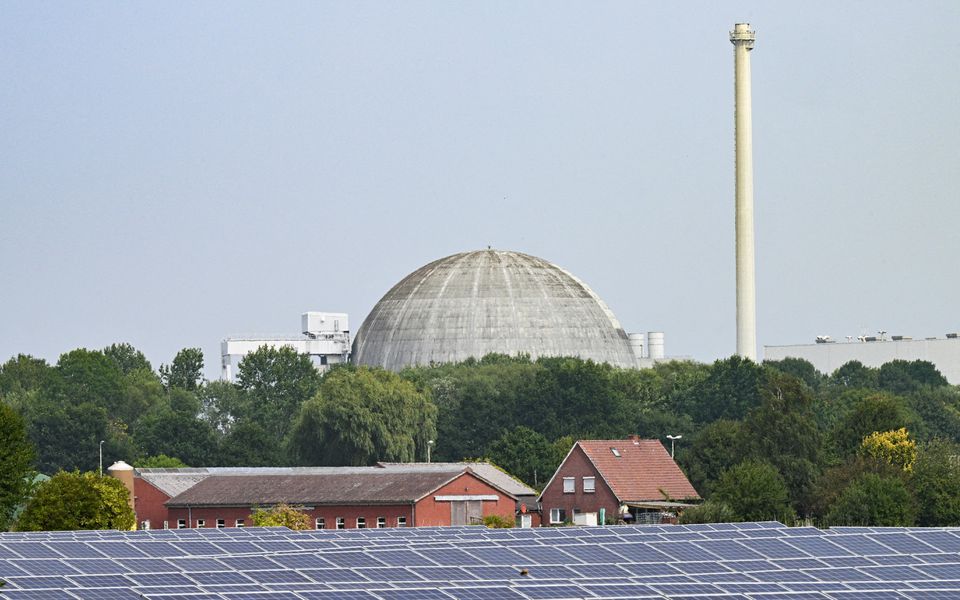
BRUSSELS, March 16 (Reuters) - Seven EU states including Germany, Spain and Denmark have strengthened their resistance to efforts by France to count nuclear energy towards EU renewable energy targets, according to a letter seen by Reuters.
The European Union is negotiating more ambitious targets to expand renewable energy this decade, but the talks have been deadlocked by a dispute over whether countries can meet the goals using "low-carbon hydrogen" produced from nuclear power.
Oh Thursday, ministers from the seven countries - Austria, Denmark, Germany, Ireland, Luxembourg, Portugal and Spain - wrote to Sweden, which holds the rotating EU presidency and represents countries in EU policy negotiations, calling for the targets to be kept free of non-renewable energy sources.
"Taking into account low-carbon hydrogen and low-carbon fuels in the 2030 (renewable energy) targets would decrease the ambition and slow down renewables deployment, which in turn would jeopardize the achievement of the climate targets," the ministers said in the letter, seen by Reuters.
They said this decade will be decisive for limiting climate change - and that renewable power and hydrogen will be the main drivers of the emissions cuts needed to do this.
"Additional renewable energy capacity can be installed within short timeframes and at comparatively competitive costs," the letter said.
Nuclear energy is low-carbon, but not renewable. The fuel source divides EU countries, with Austria and Luxembourg firmly opposed, while others including Germany are phasing out their reactors and countries including Denmark and Ireland are nuclear-free.
France, which has historically relied on nuclear energy for 70% of its power, is leading the push to open up the EU renewable energy targets.
Last month France, Poland, the Czech Republic and six other pro-nuclear EU countries warned that excluding nuclear from the targets would slow development of hydrogen fuel, which Europe is betting on to decarbonise heavy industry.
An EU diplomat said frustration was growing among some countries over France's push for nuclear at a late stage in the negotiations, and a separate row in which Germany is stalling an EU law on car emissions after it had already been agreed.
Such moves by Europe's two biggest economies "paint the picture of the big member states playing by different rules than the small ones," the diplomat said.
The seven countries said they were open to discussing low-carbon fuels' contribution in other EU laws, including on gas networks - but that renewable goals should only be met by wind, solar and other renewable energy sources.

Since 2022, the Fed has cumulatively reduced its balance sheet by $2.4 trillion through quantitative tightening (QT) policies, leading to a near depletion of liquidity in the financial system.
Since 2022, the Fed has cumulatively reduced its balance sh…
On December 11 local time, the White House once again spoke…
Fiji recently launched its first green finance classificati…
Recently, the European Commission fined Musk's X platform (…
At the end of 2025, the situation in the Caribbean suddenly…
The U.S. AI industry in 2025 is witnessing a feverish feast…